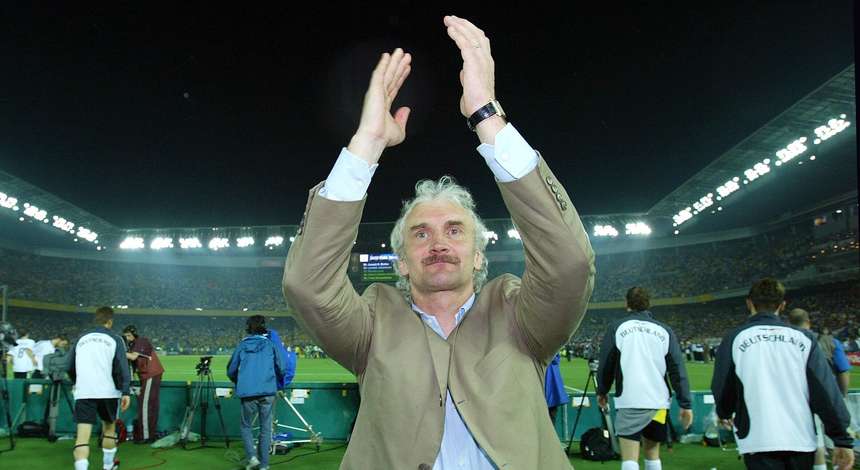
The German team drew 1-1 in the first leg in Kiev four days before. In an interview with bayer04.de, Rudi Völler recalls the most difficult days of his career. The Bayer 04 sporting managing director talks about the tense situation ahead of the two play-off matches, the consequences in the event of failure and about the redeeming 4-1 win in Dortmund that saw five Bayer 04 players in key roles.
Rudi, what was your mood like during the run-up to the two World Cup play-off matches against Ukraine on 10 and 14 November 2001?
Völler: We had enough time to prepare properly for the two matches. Michael Skibbe, Erich Rutemöller and I had everything about the Ukraine national team put together on video. I was aware that this was the biggest challenge in my football career up to that point. And it was also the biggest pressure I'd ever been under. I never experienced anything like that again either at the first match as the team coach, later at the World Cup in Japan and South Korea or at the European Championships in Portugal. The situation back then was that Germany might actually not qualify for a World Cup. Obviously, that would be unthinkable in this land of football. Nobody could imagine that happening.
Only the teams finishing top of the group would qualify for the World Cup and Germany were in a group with a strong English team.
Völler: Yes, it was clear that one of the big teams, either us or the English would not qualify directly for the World Cup finals. Finishing second in that group would not have been a disgrace. But not getting past Ukraine in the play-offs would have been seen as a huge embarrassment in Germany and felt to be a disaster.
There was great criticism after the 0-0 draw against Finland on the last matchday in the group.
Völler: Something that many people always forget: Yes, there was no doubt we play badly against Finland but the goalless draw would have been enough if England had not equalised at 2-2 in the last minute against Greece. Our game had already finished and England were 2-1 down. And then David Beckham hits a free kick into the top corner to equalise in added time. Otherwise we would have finished top of the group. Just as I obviously wanted it to be. But perhaps it wasn't such a bad thing that we had the adventure of the two play-off games against Ukraine. Of course, I'm saying that with hindsight in the knowledge that everything turned out well. We got the fans back on our side with the 4-1 win in Dortmund. And for our development up to the 2002 World Cup we needed the cohesion, the team spirit that developed over the play-off games. At that time we weren't amongst the top teams. There were others who were better than us.
Ukraine also had a star-studded team. What was your assessment of the opponents?
Völler: Ukraine definitely had a really good national team for the first time. There wasn't just Andrej Shevchenko but also another top striker Serhiy Rebrov and a top midfield built around Anatoly Tymoschuk. It was clear it would be difficult for us.
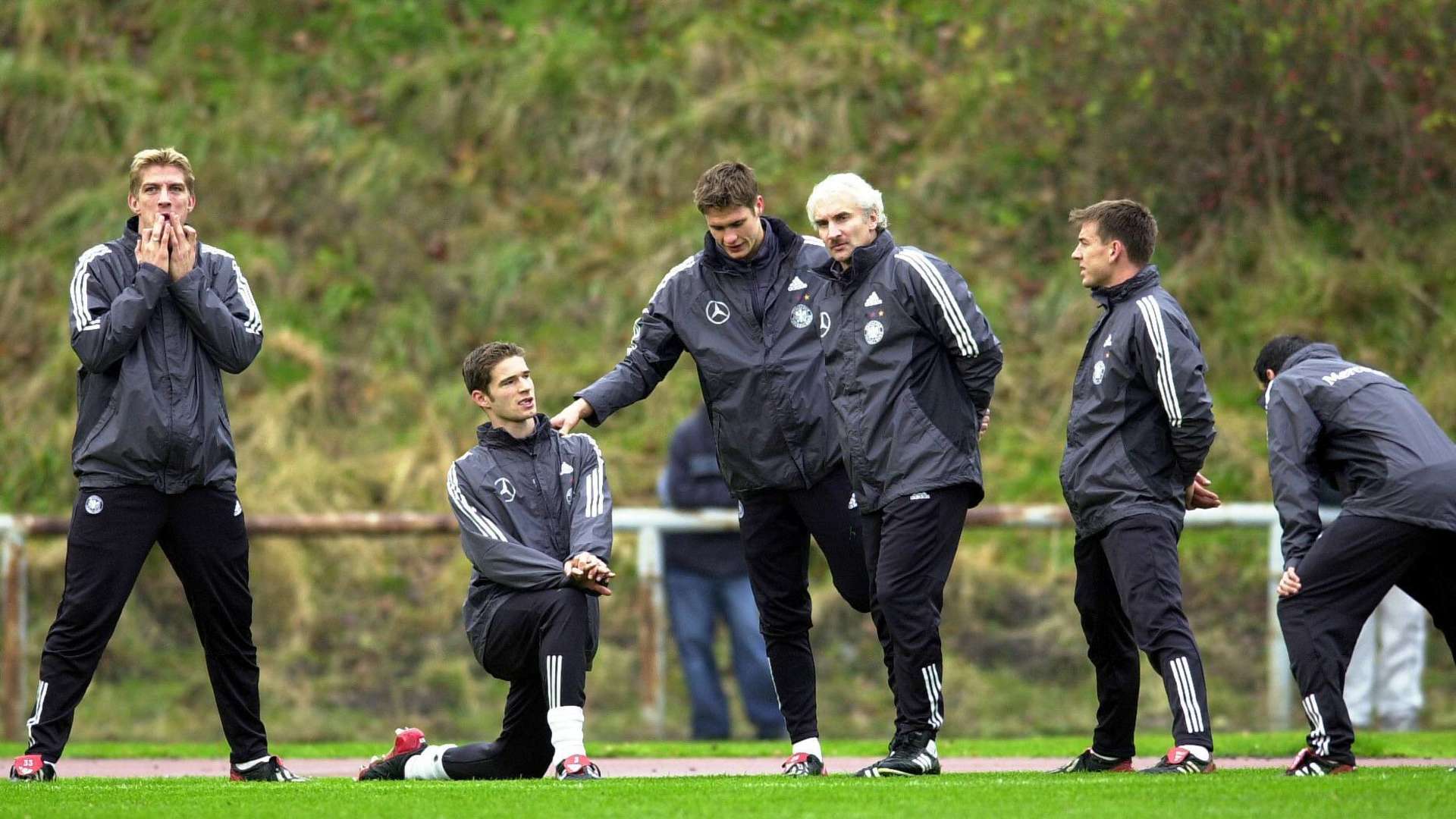
Did you change anything in the training sessions before the two games, did you have to come up with new stimuli?
Völler: No, the players understood what it was all about. Everybody wanted to get to the World Cup finals. Everybody was absolutely focused. We didn't need to do anything special in training. And everybody was fit physically and mentally on the day.
Were they the most difficult days for you in your time as the coach of the German national team?
Völler: If you are responsible for the national team and you can't qualify for a World Cup, which was always a given for Germany, then that would be an absolute disaster. At the same time, it wasn't the first time we'd been in such tricky situation. If I think back to our last qualifier for the 1990 World Cup in Italy: We were leading 2-1 against Wales and definitely had to win that match when Mark Hughes headed the ball over the bar from six yards out. He normally put those away in his sleep. If he had made it 2-2 then we would not have qualified for the World Cup and would not have been World Cup winners. It's really that tight sometimes.
Did you think about possible consequences for yourself in the run-up to the games? Would you have resigned in the event of not qualifying?
Völler: (He laughs) I said to my assistant coach back then Michael Skibbe: 'If we don't do it then I'm emigrating to Australia, to Melbourne or Sydney. Perhaps you'll get another chance but my reputation would have been toast.' No chance – I would have had to emigrate. But joking aside: I would have been the first team boss or coach of a German national team not to qualify for a World Cup finals. That didn't give me nightmares and I didn't wake up drenched in sweat. But now and again, as with this interview, it was clear to me that we were under incredible pressure. And if I think back to the first 20 minutes in Kiev that it was really extreme. All hell was let loose at the Olympic stadium. There were almost 85,000 spectators at the match. And Ukraine raced out of the blocks and were already 1-0 up after 18 minutes. We hardly got into their half and we were lucky not to be further behind.
But then your team sorted themselves out.
Völler: Yes, and it proved what I’d seen again and again in my four years as the team boss: My key players in the team were Oliver Kahn in goal and, above all, Michael Ballack. Michael scored the crucial goals in both matches. The equaliser at 1-1 in Ukraine that silenced the crowd. We grew stronger after that and were on top of Ukraine in the second half. In the return match, Ballack put us 1-0 up after four minutes. Sometimes I ask myself what would have happened against Ukraine if Ballack had not played. And I think exactly the same sometimes that we would have had a good chance with the 2-0 defeat against Brazil in the 2002 final if Ballack had not been suspended.
Let's talk about the 4-1 when in Dortmund. What was the mood like in the team before the game?
Völler: We flew straight from Kiev to Dortmund after the first leg. The mood was good after the 1-1 draw and we were in a good position but, of course, it wasn't all over. We were tense before the return game but positive. Because we knew: We showed we were better than Ukraine after the 1-1 draw.
What was the game plan? What do you say to the team in the dressing room?
Völler: We wanted to carry on from where we left off in Ukraine. We wanted to apply lots of pressure from the start. We consciously chose Dortmund as a venue because we knew the atmosphere would be brilliant. The fans would be behind us like a wall. Nevertheless, we obviously want to get them on our side by playing good football. I told the players they shouldn't be afraid of mistakes because they would be forgiven everything in this match where it was about the really big thing. We felt ahead of the game that the whole of Germany had their fingers crossed for us. And at the stadium I felt from the start: Nothing will go wrong today, we’ll crush them. And you could see with Ukraine in the opening minutes that they didn't really believe in themselves any more. It was all over after 15 minutes. We were 3-0 up. The pressure dropped a bit and I could relax. But it was also once again clear to me at that moment what enormous significance this game had.
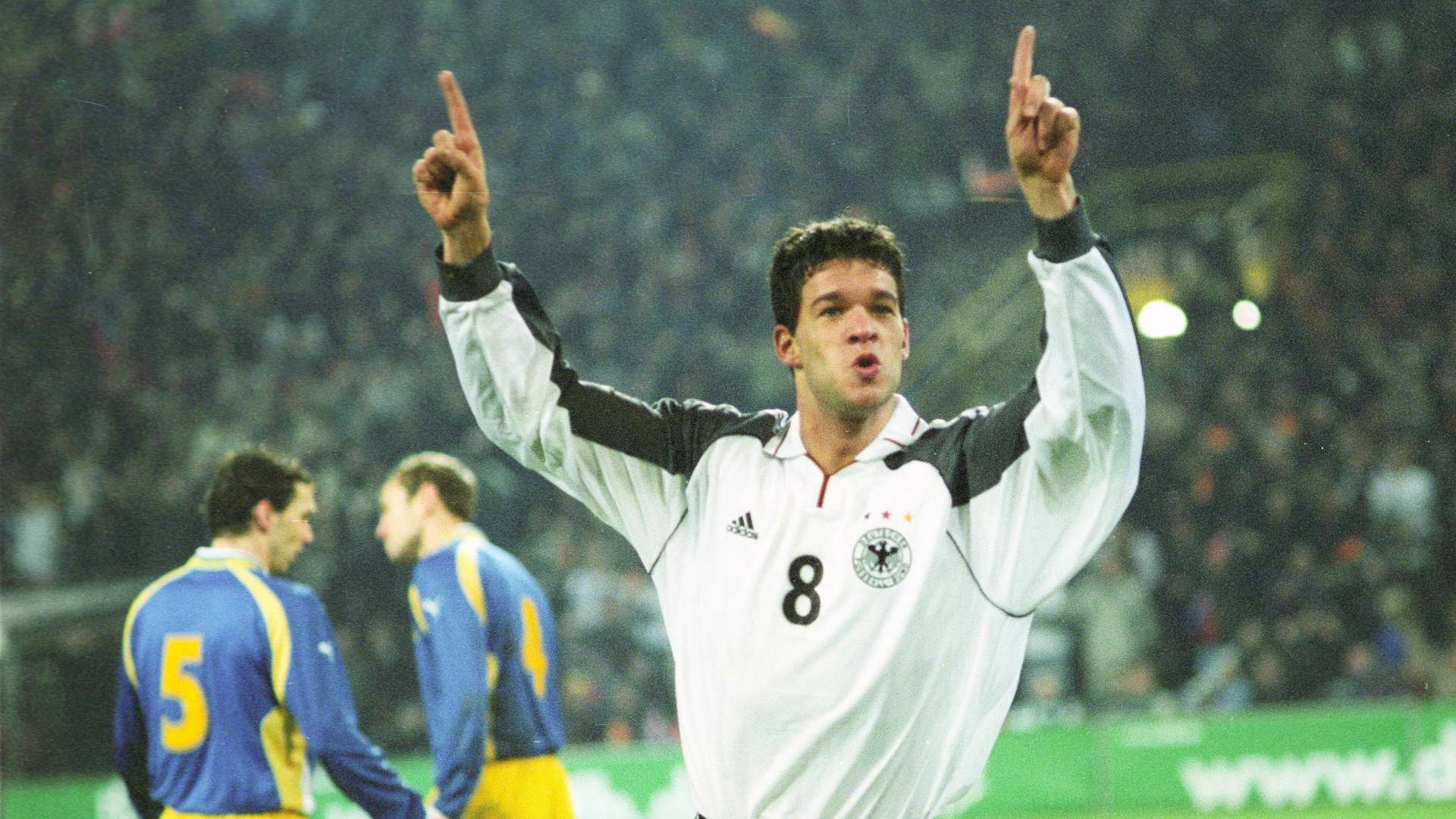
Michael Ballack made it 1-0 with the help of Bernd Schneider: Oliver Neuville doubled the lead and he set up the third goal for Marko Rehmer with a corner. Ballack scored the fourth goal. The Bayer 04 quintet in the starting line-up was completed by Calle Ramelow and Jens Nowotny. The Leverkusen players received top marks and played a huge part in qualifying for the World Cup finals.
Völler: Along with the double goalscorer Michael Ballack, Bernd Schneider was the best man on the pitch on the night. Schnix tied up the Ukrainians. It felt like he put in 25 crosses from the right. When he dribbled round the third Ukrainian, he knew that Michael Ballack would be in the middle at some point and that he not only had all the skill but also an incredible strength in the air. Oli Neuville also didn't score but he did have a great game. Exactly like Carsten Ramelow. And I get annoyed whenever I hear Leverkusen players can't handle pressure. Because it's simply not true. Just one example of that. Bayer 04 are the club in the Bundesliga most often in the qualifiers for the Champions League, four times in all. If you can't come out on top in games like that then it's an incredible disappointment. But Bayer 04 always qualified. Every time.
Dr. Manfred Schneider, then the chairman of the board at Bayer AG, said after the 4-1 win against Ukraine: "It fills me with pride and satisfaction that the Bayer 04 players who got it in the neck so often in the past were capable of dealing with the pressure and helped German football get out of this difficult situation." How satisfied were you?
Völler: I only really felt satisfied later at the World Cup in Japan and South Korea when we were the surprise runners-up. I just felt great relief after the 4-1 win against Ukraine. Because we'd won against a really good opponent. And with the exception of the first 20 minutes in Kiev, in a most convincing way – that was really impressive.
Did you and your team celebrate qualifying for the World Cup a bit in Dortmund?
Völler: No, the game was on a Wednesday night and the players had to play in the Bundesliga again at the weekend. I had one or two beers in the dressing with Michael Skibbe and goalkeeping coach Sepp Meyer but then it was straight back home.
Related News
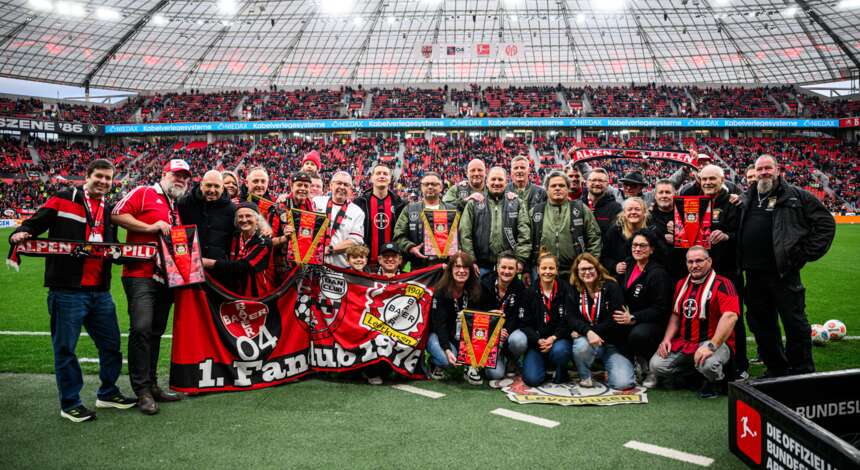
Bayer 04 honour six fan clubs for decades of loyalty at Mainz game
From special edition jerseys to fan banners, the home game against Mainz 05 was all about the many Bayer 04 fan clubs. Accordingly, a fitting tribute to the long-standing Werkself supporters was not to be missed during half-time in the Bundesliga match. Fernando Carro, CEO, honoured the up to 50-year anniversaries of six fan clubs in front of the coaches' benches at the BayArena.
Show more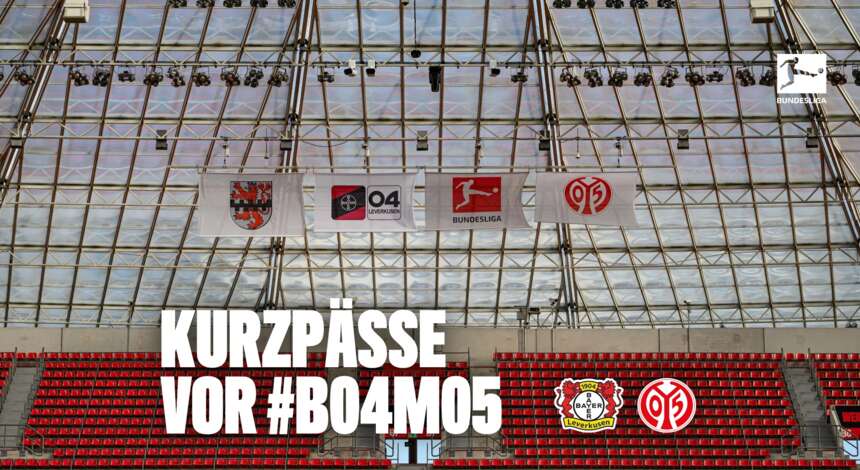
Matchday news #B04M05: Special jersey on fan club matchday
There’s lots going on at the BayArena today. The home game against FSV Mainz 05 is all about the numerous Bayer 04 fan clubs, whose birth - the founding of the "1. Fanclub 1976 Leverkusen" - dates back 50 years. A number of fan club representatives will be involved in awards, a banner display and a half-time matchday chat, and the Werkself are set to play in a special white fan club jersey. During half-time, Leverkusen mayor Stefan Hebbel and javelin world champion Steffi Nerius will also talk about the Olympic bid involving Leverkusen. Black and Red fans are advised to get to the stadium in good time today. Matchday news.
Show more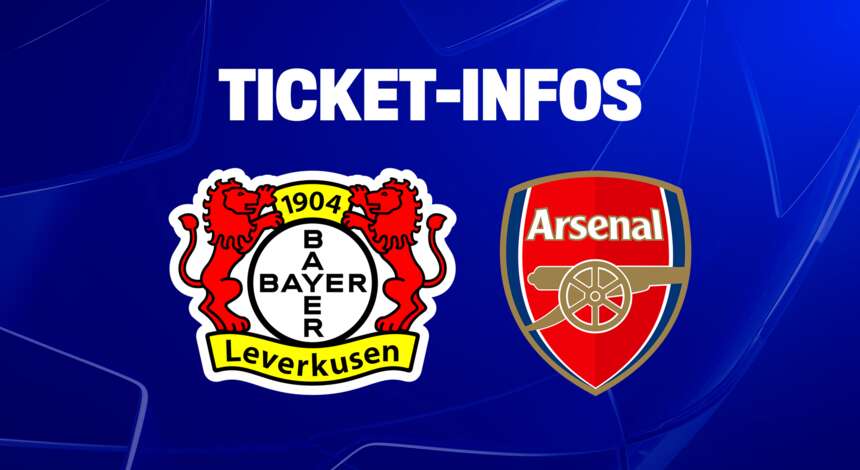
Tickets for the Champions League Round of 16 home game against Arsenal
The Werkself host Premier League club Arsenal in the Round of 16 first leg in the 2025/26 UEFA Champions League campaign. The match at the BayArena is on 10/11 March. Read on for information on ticket sales for this fixture.
Show more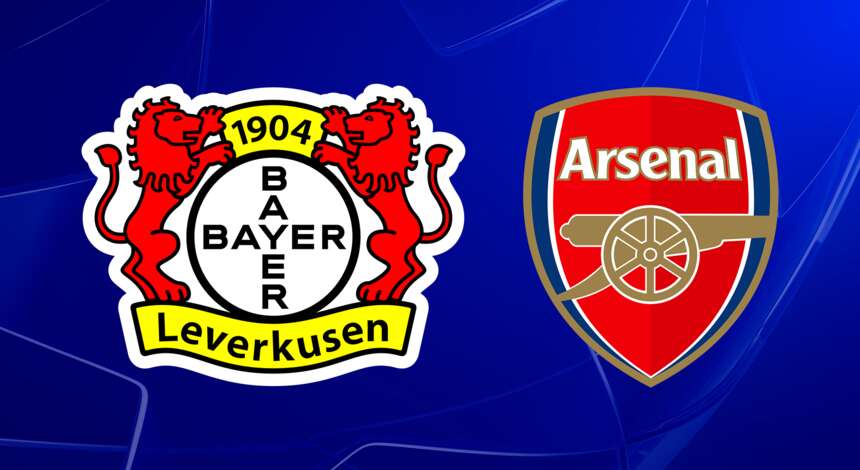
UEFA Champions League: Werkself face Arsenal in Round of 16
The draw for the Round of 16 in the UEFA Champions League 2025/26 was made today, Friday 27 February: Bayer 04 face Premier League leaders Arsenal. Managing director sport Simon Rolfes sees the English team as a "top opponent" and is looking forward to meeting former Werkself players Kai Havertz and Piero Hincapie again.
Show more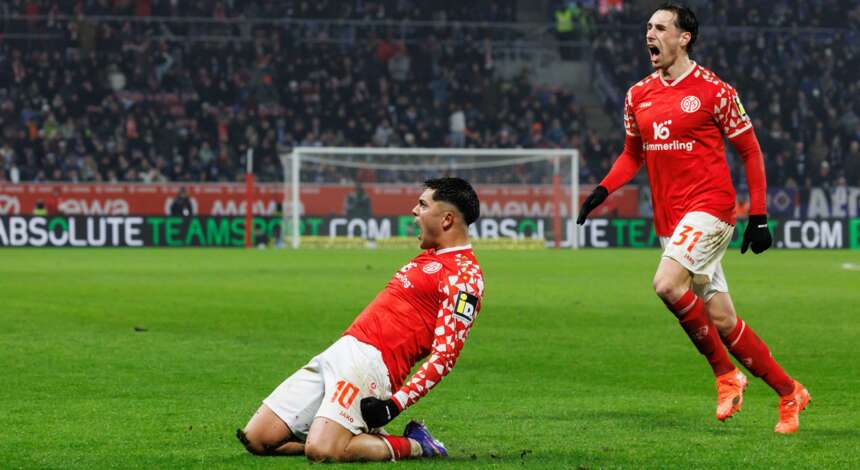
Our next opponents: On the right track with evident quality
After three consecutive victories, FSV Mainz 05 recently suffered setbacks against Borussia Dortmund (0-4) and Hamburger SV (1-1) in the battle to stay up. Nevertheless, the Mainz 05 performance curve has shown a clear upward trend in recent weeks. Their coach and a former Leverkusen player in particular have played a decisive role in this. The lowdown on our next opponents.
Show more